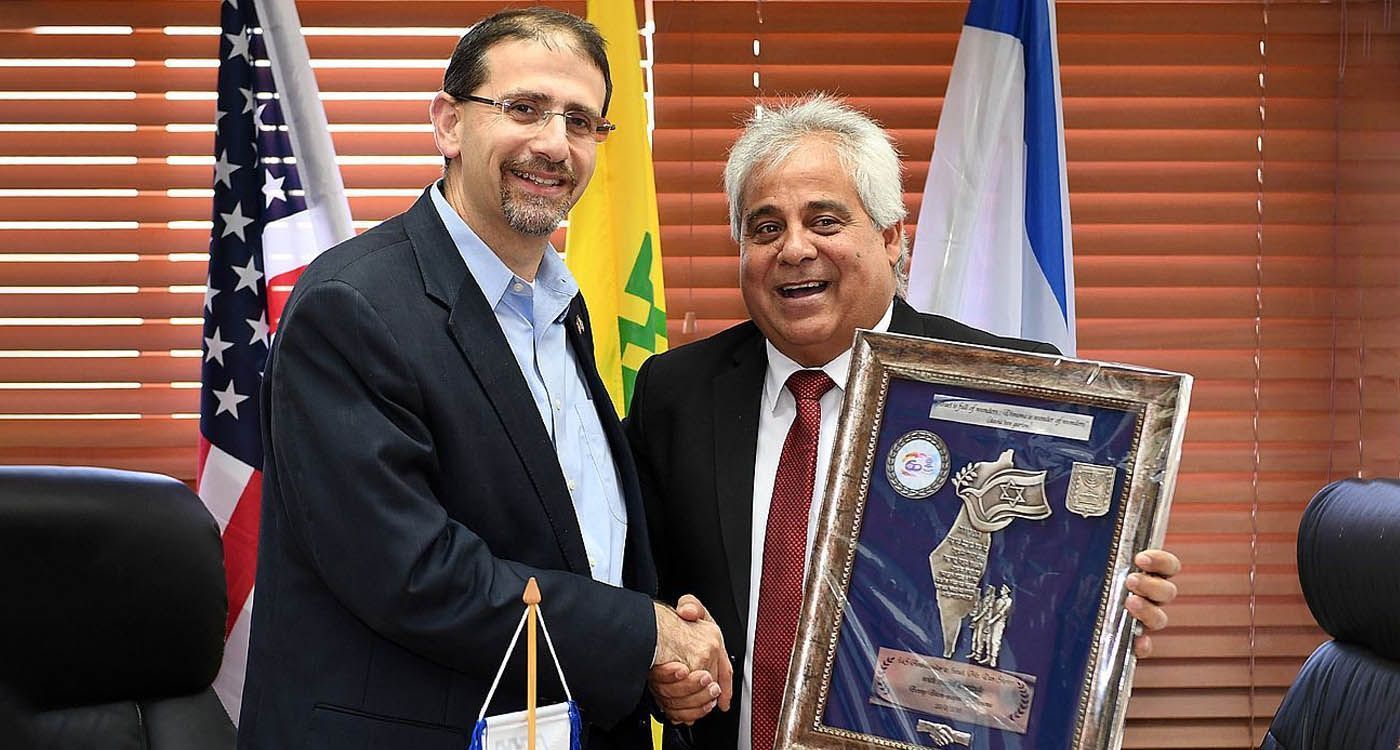- Home
- Middle East
- Dan Shapiro in Israel to Discuss Ceasefire Mechanism

Former U.S. ambassador to Israel, Daniel B. Shapiro, visiting Dimona. ©Communs.wikimedia.org
US Deputy Defense Secretary Dan Shapiro is in Israel to discuss the US-led mechanism for monitoring the ceasefire between Tel Aviv and Hezbollah.
US Deputy Secretary of Defense Daniel B. Shapiro was due to meet senior Israeli officials, including Defense Minister Israel Katz, in Tel Aviv on Monday to discuss the agreement (for a ceasefire between Israel and Lebanon) and, more specifically, the monitoring mechanism to be headed by the United States.
Israeli and US officials believe that an agreement with Lebanon could be reached as early as this week, according to information broadcast on Monday on Israeli public radio Kan Reshet Bet, as well as by the US website Axios. According to Kan 11 and Axios, which quotes an American official, the agreement with Lebanon has already been finalized. The Israeli war cabinet is due to hold a meeting on Tuesday to examine the draft text, a number of points of which are still pending due to Israeli and Lebanese reservations.
On the Israeli side, these relate to the presence of France on the committee monitoring the implementation of UN Security Council Resolution 1701, and to Tel Aviv's desire to ensure that Hezb complies with the provisions of this resolution, which Lebanon has reportedly rejected. Israel also rejected a Lebanese request to settle disputed points on the southern border.
It should be noted that the US President's special envoy, Amos Hochstein, had warned that he would withdraw from the talks if an agreement was not reached in the next few days.
Dan Shapiro's visit to Israel is thus a continuation of Amos Hochstein's mission. According to Israeli journalist Barak Ravid, Dan Shapiro's job at the Pentagon was to “coordinate, among other things, security relations with Israel, the Red Sea freedom of navigation project” — a hot topic of late — and, most importantly, “the fight against Iranian proxies”.
The purpose of his visit to Israel is to discuss the practical details of the planned truce agreement.
At the Pentagon, this diplomat is in charge of the Middle East dossier. He played a crucial role in accompanying and developing the Abraham Accords, the peace treaties between Israel and the United Arab Emirates and those between Israel and Bahrain, signed on September 15, 2020, at the White House, under the aegis of former President Donald Trump. These agreements were subsequently extended to other countries, including Sudan and Morocco. They were about to be signed between Israel and Saudi Arabia, when Hamas launched its murderous large-scale offensive against the Jewish state on October 7, 2023, triggering a war that lasted more than a year.
Dan Shapiro was appointed Assistant Secretary of Defense for the Middle East on January 8, 2024. He had previously served as Senior Advisor for Regional Integration in the State Department's Bureau of Near Eastern Affairs from 2023 to 2024. In June 2023, he was appointed by the Biden administration to expand Abraham's relationships, which led to frequent visits to the countries concerned. One of his missions was to monitor and promote regional projects within the framework of these treaties.
He also served as Senior Advisor to the US Special Envoy for Iran from 2021 to 2022, and as US Ambassador to Israel from 2011 to 2017.
Before joining the Biden administration (in January 2020), Dan Shapiro was director of the N7 initiative. The N refers to normalization, while the 7 stands for Israel and the six Arab countries that have announced the normalization of their relations with Tel Aviv (Bahrain, Egypt, Jordan, Morocco, Sudan and the United Arab Emirates). This is a partnership between the Atlantic Council, an American think tank dealing with international affairs, and the Jeffrey M. Talpins Foundation. Talpins Foundation brings together governmental and non-governmental experts from Israel and the Arab states to formulate concrete recommendations designed to bring tangible benefits to the peoples of the latter.
The N7 initiative seeks to broaden and deepen normalization between the Hebrew state and Arab and Muslim countries.
Ambassador Shapiro has held numerous senior foreign policy positions in the US Executive Branch and Congress. He was Senior Director for the Middle East and North Africa at the National Security Council from 2009, when he visited Lebanon, to 2011, and Director of Legislative Affairs at the National Security Council from 1999 to 2001.
Previously, he served as senior advisor to US Senators Bill Nelson and Dianne Feinstein, as well as on the House Foreign Affairs Committee's Subcommittee on Europe and the Middle East.
Read more



Comments